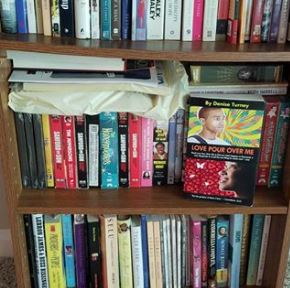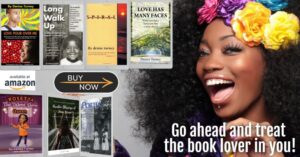By Charles Dundley
 Book selling requires focus, persistence, passion and the right book selling strategies. Identifying and building relationships with your book reader audience is key to each effective strategy. So, how do you identify the right book readers?
Book selling requires focus, persistence, passion and the right book selling strategies. Identifying and building relationships with your book reader audience is key to each effective strategy. So, how do you identify the right book readers?
Here are two key book selling strategies
Begin by considering the novel or nonfiction book that you wrote. What are the two to three central themes that your book focuses on? Those themes might range from romance to small town mystery to 17th century Indigenous history to Negro League sports baseball icons.
There are people who would spend time and money to learn more about life events and subjects that they feel happy, excited, satisfied or entertained discovering more about. In some cases, book readers, particularly in the nonfiction realm, are easy to find.
You could find these readers by searching through hobby directories, professional memberships, meet ups, topic specific clubs and subject based festivals. Let’s say that your book theme is wood cutting. Colleges that confer wood cutting certificates and diplomas, LinkedIn wood cutting discussion groups and wood cutting meet ups are good places find your right readers.
Building book reader relationships
Identifying your book’s readers is strategy number one. It’s a step that some authors overlook, especially writers who try to convince themselves that their book is for everyone. Building relationships with these readers is the second of several book selling strategies.
Here are easy ways to build book reader relationships. As with any rewarding relationship, it takes time and genuine interest in other people to implement this second book selling strategy effectively.
- Attend festivals, lectures and meet ups that highlight central themes in your book. For example, if you mystery novels, you could attend mystery theater lectures or historic mystery tours. Don’t just attend these events. Ask people questions. Introduce yourself and start conversations.
- Leave bookmarks that include your author website URL with each and every person that you meet.
- Follow people who follow you on social media, people who list passions for themes that you write about on their social media profiles
- Comment directly to people who posts feedback on your YouTube, Facebook, Google Plus, Twitter and other accounts
- Set aside 15 or more minutes a day to check on social media accounts
- Schedule automatic social media posts (don’t make potential book buyers wait long stretches before they hear from you)
- Teach courses at community colleges that focus on themes that you write about. Include your book titles in your bio that accompanies the course synopsis
- Encourage friends and relatives to purchase copies of your books
More book selling strategies
More book selling strategies require you to get out from behind your computer. As you implement each strategy, make building relationships (not selling books) the priority. These additional book selling strategies include:
- Subscribe to Help a Reporter Out (HARO), subscription based news outlets and media outlets (like radio station newsletters)
- Email reporters, interviewers and journalists when they seek guests who are knowledgeable about topics that your book focuses on
- Complete at least two book selling strategies a day
- Write on a new book every day, every week at the very least. Writing new material is a strong motivator to keep marketing and selling books
- Schedule and show up for two radio interviews a week
- Add a blog to your author website
- Create a website for your most recent book, a website that is separate from your author website
- Add effective meta tags to your author website and blog
- Start a video channel and publish a new video once or twice a week
- Build an author central page at Amazon.com
- Giveaway free copies of your books to media, entertainment and book club influencers
Don’t overlook the fact that the best way to build courage to meet the right book readers and build rewarding relationships with these people is to right your best book. Do this every time that you sit down to write. When you know how valuable your book is, it becomes easier to share the book with others.




You must be logged in to post a comment.